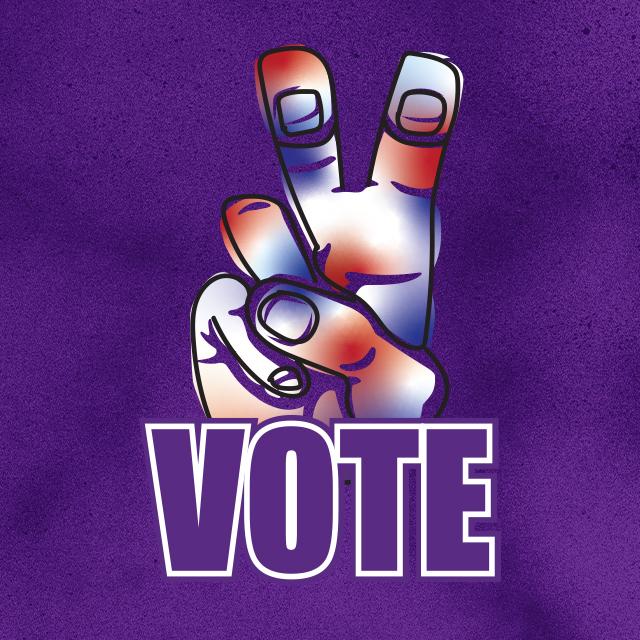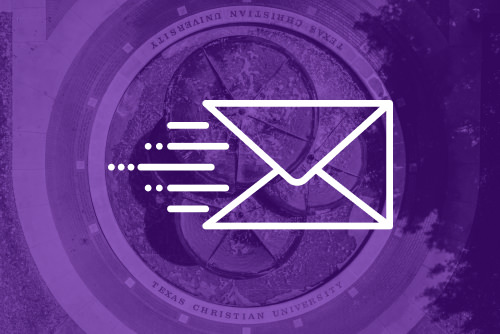Betting on Democracy: Grant Ferguson Discusses Political Predictive Markets
 Fall 2024 officially brings with it an election season. This year, TCU is presenting
a series of events titled Elections, Democracy and Social Values. The series aims
to explore various viewpoints and aspects of an election and engage TCU’s diverse
community in voting as informed, responsible citizens.
Fall 2024 officially brings with it an election season. This year, TCU is presenting
a series of events titled Elections, Democracy and Social Values. The series aims
to explore various viewpoints and aspects of an election and engage TCU’s diverse
community in voting as informed, responsible citizens.
The first event, Betting on Democracy: Predictive Markets and Their Impact on Elections, will feature Grant Ferguson, instructor II of political science and director of public outreach. Ahead of the event, Ferguson answered a few questions on the topic at hand for TCU News.
Let’s start with a baseline. For those who are unaware, can you give us a layman’s
definition of a predictive market when it comes to elections?
Prediction markets or betting markets for politics are a lot like betting markets
for sports. Bettors are trying to predict the outcome of an event that has not yet
happened, such as TCU winning the College Football Playoff National Championship or
a particular candidate winning the 2024 presidential election this November.
Bettors on prediction market websites purchase and sell “futures” of a candidate, just like you might with a financial commodity, for a price that typically fluctuates between around 1 cent and 99 cents. If you own Democratic nominee Kamala Harris shares that you purchased for 25 cents and she wins the election, those shares are then worth 100 cents because the event would’ve happened and the market then closed. You may then collect your winnings from the website, less any fees. If you own Harris shares and she loses the election, however, the market closes and those shares are worth 0 cents. You've lost whatever value you paid for those shares.
In these kinds of betting markets, the current price to purchase a “yes” futures contract of Republican nominee Donald Trump to win the 2024 presidential election reflects the likelihood that bettors/traders overall price his odds of winning in terms of a percentage between 0 and 100. If one “yes” future of Trump winning the election costs 55 cents, the betting market overall sees his odds of winning as roughly 55 percent. If you have the money and want to bet, and you think his chance of winning is greater than 55 percent, you may want to buy a “yes” share. If you have some Trump “yes” futures but think he is only 40 percent likely to win, and market price is 55 cents, you may want to sell.
 Why do prediction markets matter?
Why do prediction markets matter?
Predictions markets are valuable because they provide a picture of the chance of different
election outcomes that isn't solely based on polling. Bettors/traders are motivated
to buy and sell based on a variety of factors, including economic data, foreign policy
events, scandals, their own observations about party strength in a state, inside information,
etc. Unlike the stock market, prediction markets are typically open all day, every
day, so they can update in real-time in response to events, like a great debate performance,
that might not be reflected in polls for a few days.
Many people who follow politics have strong opinions, and prediction markets give them a chance to express their thoughts in a way that can influence the opinions of other observers. However, because they have to put money behind their opinions to bet, they have to put their money where their mouth is. They have incentives to bet on what they believe the true state of the world is, not what they wish the state of the world would be. Betting markets therefore can incorporate the opinions of political experts, or people who think they are experts, in a way that reveals information to the American public.
How are they used in comparison to polling?
Predictions markets do change in response to polling, and the opinions of traders
are shaped by it, which is probably a good thing. However, unlike polls, traders’
opinions about an election, expressed through buying and selling futures of candidates,
can update in real-time and include a lot more information. In some ways, they are
easier to understand than polls.
Can you tell us how this activity has trended in recent elections and what you’re
seeing this cycle?
Betting markets often do well at predicting winners, or at least better than polls.
While betting markets favored then-Democratic nominee Hillary Clinton to win in 2016,
they thought Trump had a better chance than most polls did. They favored Biden to
win in 2020.
Prediction markets this year, and in years past, are still probably influenced more by polls than they should be. For traders who think that factors like the economy and foreign policy are better predictors of election outcomes than polls, though, that may present an opportunity to make some money!
Anything else that voters should know on this topic?
TCU’s guest speaker at our first Betting on Democracy event is Robert Barnes, a trial
lawyer and famous political bettor. He has a strong track record of success and will
have a lot of interesting thoughts for our audience!
Elections, Democracy and Social Values – Betting on Democracy will be held Sept. 11.
